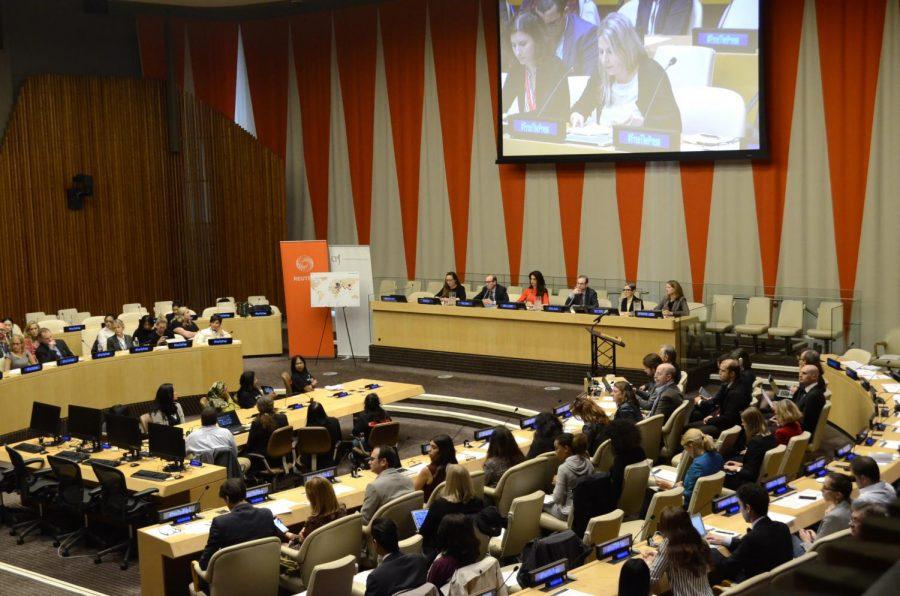Journalism Advocates Criticize U.N.
The Committee to Protect Journalists side session at the U.N. General Assembly highlighted the threats facing journalists and the right to free speech.
October 1, 2018
Last year, more journalists were jailed for their work than ever before, according to a free press advocacy group.
The Committee to Protect Journalists has accused the United Nations of failing to take tougher action against member states that violate reporters’ rights.
“Governments are directly responsible for these grave abuses, and the U.N. has a culture of rarely calling out its members,” CPJ’s Executive Director Joel Simon told delegates at a side event at the United Nations General Assembly on Friday.
CPJ counted 262 journalists imprisoned, the highest number ever recorded by the organization, in its 2017 report. Of these, Turkey detained the most journalists at 73, with China and Egypt rounding out the top three with 41 and 20 detentions, respectively. These countries accounted for more than half of the total cases of arrests and detentions recorded by the CPJ.
But one of the most high-profile cases of journalists detained for their work comes from thousands of miles away.
In Myanmar, Reuters correspondents Wa Lone and Kyaw Soe Oo have been imprisoned since 2017. They were arrested by troops while reporting on the massacre of 10 Rohingya Muslim men.
The two were found guilty of breaching the country’s Official Secrets Act by acquiring confidential documents. Both pleaded not guilty, claiming that they were handed the documents by policemen in a set-up that led to their arrest. Ultimately, they were sentenced to seven years in prison in what Amal Clooney, who represents the two, described as a “sham trial” and a “travesty of justice.”
A number of nations, including the United States, pushed for the journalists’ release at the Security Council meeting on Tuesday. Clooney joined their call for a pardon.
Suu Kyi holds “the key to the liberty [of the journalists]…the key to freedom of the press, the key to truth and accountability,” Clooney said. “History will judge her on her response.”
Reuters Editor-in-Chief Stephen J. Adler also took to the podium at the event, describing the two journalists as patriotic citizens who acted in the hope of supporting democracy as promised by Suu Kyi.
“Both [of them] chose journalism with a sincere belief that they can advance these goals by impartially uncovering facts and telling the truth,” Adler said in his speech.
Adler also called on the government of Myanmar to immediately release them, saying his outlet “will not be intimidated from pursuing these stories despite the unjust prosecution of our journalists.”
The side event also called attention to other imprisoned journalists around the world. One of these was Shahidul Alam, a Bangladeshi photographer who was arrested in August after streaming a video of anti-government protests in Dhaka, the country’s capital.
Several of Alam’s relatives attended the U.N. event, where they called on world leaders to press the Bangladeshi government to free him.
Alam’s cousin, Shamima Khan, told WSN that her relative’s only offense was covering the brutal crackdown on student protests by security forces of the country.
“He was picked up under Section 57 of the Information Technology Act and is accused of defamation and speaking against the government,” Shamima said. “We want the international community to condemn his imprisonment, to seek his release, to ask the Prime Minister [of Bangladesh] to uphold the human rights obligations that Bangladesh entered into.”
Email at Benjamin Tetteh at [email protected].
A version of this article appeared in the Monday, Oct. 1 print edition.
























































































































































